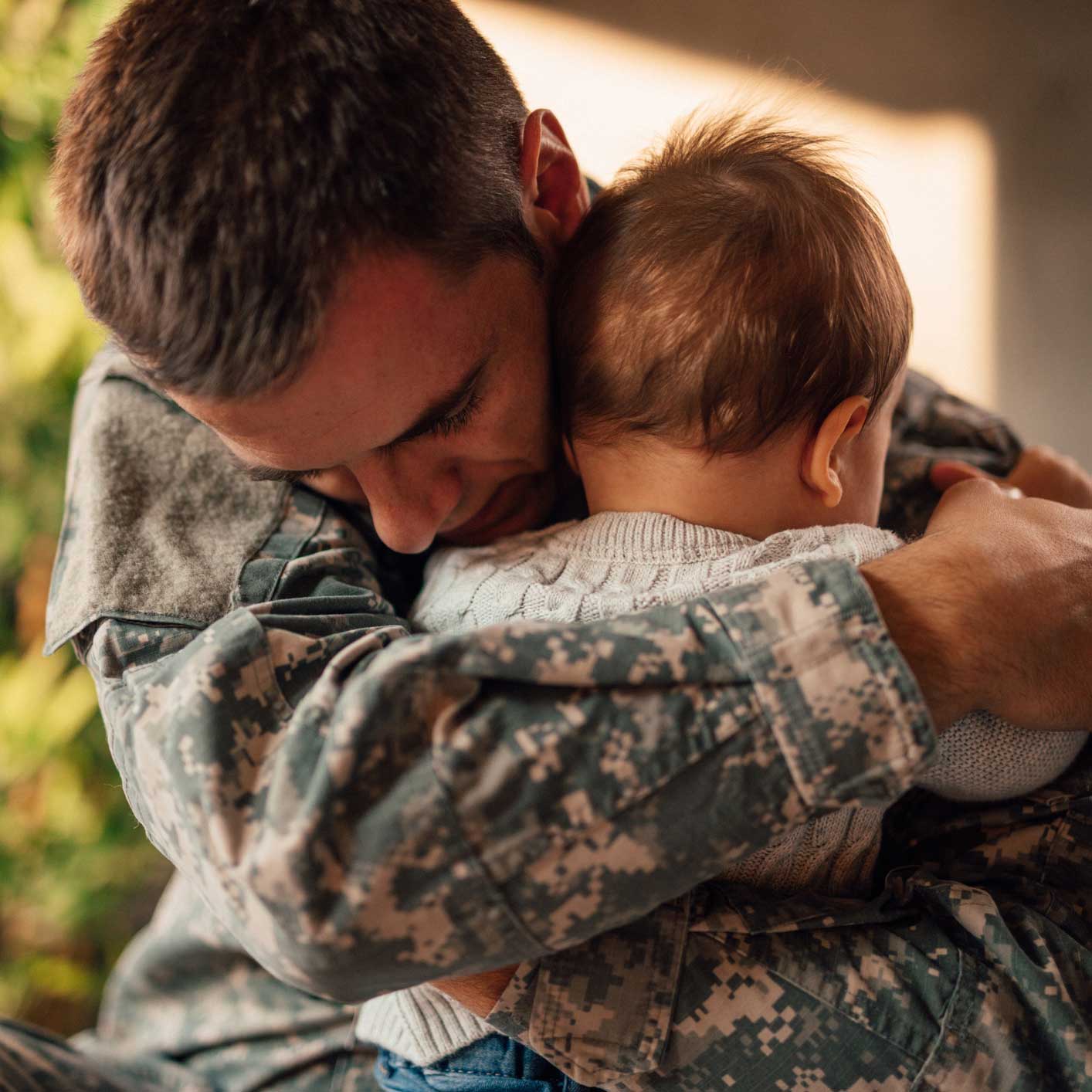If You Were at Camp Lejeune 1953-1987 and Suffered Illness or a Loved One’s Death, Begin Your Lawsuit Now.
Contact us for a free and confidential consult.
Prefer to Call or Text? We’re available 24/7.
214.427.8094
Camp Lejeune Water Contamination Lawsuit
A Tragedy 30 Years in The Making
From 1953 to 1987, people living or working at the U.S. Marine Corps (USMC) Base Camp Lejeune, North Carolina, unknowingly put their lives at risk every day doing the simplest tasks: drinking, cooking and bathing.
In 1982, Grainger Laboratories in Raleigh, NC, found the water at Camp Lejeune contained shocking amounts of these cancer-causing chemicals: trichloroethylene (TCE), tetrachloroethylene (perchloroethylene, PCE), vinyl chloride (VC) and benzene.1 As a result of further testing by Grainger and high alerts to Corps generals on the base, 10 on-site wells were shut down in 1985, but not without a fight and not before individuals had started falling ill.2
Victims said USMC authorities concealed knowledge of the problem (from residents, EPA and the state) and did not act properly in trying to resolve it or notify base residents that their health might be at risk.3
After a CBS News story aired February 2022 about children sickened at Camp Lejeune, 20 veterans came forward to describe a broken Veterans Administration (VA) claims system whose approach was, “Deny, deny, deny until they die.”4
The Camp Lejeune Justice Act of 2022 provides only a two-year window for civil claims to be properly filed, pleaded in court and resolved, so it is important that you act now to file your claim.
According to the Agency for Toxic Substances and Disease Registry (ATSDR), “… contaminants in the drinking water at the Camp Lejeune likely increased the risk of cancers (kidney, multiple myeloma, leukemias and others), adverse birth outcomes and other adverse health effects of residents (including infants and children), civilian workers, Marine and Naval personnel at Camp Lejeune.”5
Close to one million military and civilian staff and their families have been exposed to this dangerous water at Camp Lejeune, according to the CDC.7
New Hope: The Camp Lejeune Justice Act of 2022
An extraordinary piece of first-time legislation, The Camp Lejeune Justice Act of 2022 brings new hope to servicemembers, facility workers and their families who have long been denied benefits or other compensation for illnesses stemming from Camp Lejeune’s contaminated water.
Supported by both political parties (and the VA), the measure sailed through the House on May 3, 2022. Where other bills have failed, this measure takes the position that water contamination at Camp Lejeune was a “cost of war.”6
“When we send our men and women overseas, we make a promise to care for them when they come home. We failed our veterans when they were exposed to toxic drinking water at Camp Lejeune, and it is up to us to make it right.” – Congressman Greg Murphy (R-NC)

Good Intentions: The Military Wants to Make It Right
The Camp Lejeune Justice Act avails both survivors and casualties (represented by their loved ones). It’s been a long time coming. The federal government is typically immune from claims filed by government employees in the military context against its employer. But this act lifts that bar for two years from the date of enactment.
The bill establishes a first-time cause of action for people who were harmed after being exposed to toxic water in North Carolina – just like any civilian can do in every other state – and would “provide recovery by individuals who were stationed, lived or worked at Camp Lejeune, for certain actions of omissions by the United States.”
What to Do Now: Hire a Camp Lejeune Lawyer.
If you or a loved one was harmed by drinking the tap water at U.S. Marine Corps Base Camp Lejeune for at least 30 days between 1953-1987, you may be able to pursue a financial settlement that helps cover the enormous costs of disease related to toxic chemicals.
Here is a comprehensive list of diseases that may be eligible:
- Bladder cancer
- Brain cancer
- Breast cancer
- Bile duct cancer
- Colorectal cancer
- Esophageal cancer
- Gallbladder cancer
- Intestinal cancer
- Kidney cancer
- Leukemia
- Liver cancer
- Lung cancer
- Multiple myeloma
- Non-Hodgkin’s lymphoma
- Pancreatic cancer
- Sinus cancer
- Soft tissue sarcoma
- Spinal cancer
- Thyroid cancer
- Other cancer
- Birth defect/malformations — Conjoined Twins, Congenital malformation (microcephaly), Female Infertility, Miscarriage
- Cognitive disability
- Other fertility, pregnancy issue or infant injury
- Amyotrophic Lateral Sclerosis — VA found 50% higher incidence of this
- Aplastic Anemia (and other myelodysplastic syndromes)
- Autoimmune diseases
- Hepatic Steatosis (Fatty Liver Disease)
- Multiple Sclerosis
- Myelodysplastic syndromes
- Neurobehavioral effects
- Parkinson’s Disease
- Renal Toxicity
- Scleroderma
Could The Contaminants Have Been Detected Earlier?
Yes. A regulation on the books at Camp Lejeune as early as 1974 shows the Corps knew the danger organic solvents posed (in 1953, the original contaminants were benzene solvents from a nearby dry cleaning plant). The regulation outlined the safe disposal of hazardous wastes such as “organic solvents,” and warned they could contaminate drinking water, but nothing was done.7
Were Veterans’ Benefits Denied Inappropriately?
In many cases:
USMC and Naval officers at Camp Lejeune refused to disclose the fact of contamination and extent of toxicity levels until forced to do so in 1985.8 But residents had begun falling ill without an inkling as to cause, and North Carolina’s 10-year statute of limitations expired.
A decade ago, veterans were first able to file disability claims and the VA started using so-called “subject matter experts” (SMEs) to review cases. CBS News, in a February 2022 report, found that some SMEs lacked expertise in relevant medical fields. One denied a cancer claim twice, despite seven cancer specialists confirming the patient’s illness was toxin-related.9
The Human Toll
Baby Heaven is the cemetery near Camp Lejeune where hundreds of babies’ bodies are buried, delivered by mothers living on the base between 1953 and 1987. The small markers often read “Born: October 3, 1967; Died: October 3, 1967.” Others died of congenital defects or rare, terminal cancers. Mothers were at a loss to understand, until years later when Camp Lejeune became national news and it all added up.
Additionally, an alarming rate of disease has been reported in others who lived and worked at the camp. According to a CDC report from February 2014,10 Marines who spent 30 days or more at Camp Lejeune experienced:
- 35% higher risk of kidney cancer
- 42% higher risk of liver cancer
- 47% higher risk of non-Hodgkin’s lymphoma
- 50% higher risk of ALS
- 68% higher risk of multiple myeloma
Why File a Camp Lejeune Lawsuit?
It’s hard to believe, but this has never happened before in the history of our nation. Typically, the government is immune from these kinds of claims. However, in the case of Camp Lejeune, the injuries are so severe over such an extensive period of time that something had to be done. Thanks to the Camp Lejeune Justice Act, a path has been opened for those who lived and worked around the base to seek compensation for their injuries via a lawsuit.
Keep in mind, this is not a claim for benefits through the VA. These lawsuits are an additional, and separate, avenue for Veterans to obtain additional compensation related to serious health problems linked to Camp Lejeune’s contaminated drinking water. The success of your potential case will likely not be determined by the status of your VA benefits. This means that you can pursue a lawsuit even if you were previously denied VA benefits, are currently or previously receiving VA benefits, or if you need help with a prior or pending application for VA benefits.
While the Camp Lejeune Justice Act is designed to help streamline related VA benefits, the only way to access compensation for the harm and suffering associated with contaminated water at the base is to file a lawsuit with a Camp Lejeune lawyer within the two year window established by the law. Even though you have two years to file, your attorney needs time to prepare your case, so it is important that you sign up now.
We want to help you pursue justice. Contact us now for a completely free case review.
Our Camp Lejeune Lawyers Charge Nothing Unless You Win.
Remember, the ability to file a Camp Lejeune lawsuit will only be available for two years.

Helping Veterans
A Case for Justice has a history of helping military men and women and their family members. Most recently, we helped thousands of active duty and retired service men and women join the legal action against 3M for faulty earplugs. We are working with accomplished Camp Lejeune lawyers. It is our honor to help the men and women who have so valiantly served us. A Case for Justice charges individuals nothing for its services. We help make legal action accessible, understandable and affordable.
Sources
- “Marine Corps Opens Camp Lejeune Investigation,” UPI (March 10, 2004).
- William R. Levesque, “Camp Lejeune Water Contamination History,” St Petersburg Times (October 18, 2009).
- Catherine Herridge, Jessica Kegu, “’Deny until they die’: Some veterans say VA wrongly rejects claims for illnesses they blame on Camp Lejeune’s contaminated water.” CBS News (February 16, 2022).
- “In 1982, the Marine Corps discovered specific organic volatile compounds (VOCs) in the drinking water at Camp Lejeune, North Carolina.” ATSDR-CDC (September 25, 2019).
- “Pelosi Floor Speech on H.R. 3967, the Honoring Our Pact Act.” Newsroom press release (March 2, 2022).
- “In 1982, the Marine Corps discovered specific organic volatile compounds (VOCs) in the drinking water at Camp Lejeune, North Carolina.” ATSDR-CDC (September 25, 2019).
- House Hearing, 111 Congress, “Camp Lejeune: Contamination and Compensation, Looking Back, Moving Forward.” U.S. Government Publishing Office (September 16, 2010).
- Catherine Herridge, Jessica Kegu, “’Deny until they die’: Some veterans say VA wrongly rejects claims for illnesses they blame on Camp Lejeune’s contaminated water.” CBS News (February 16, 2022).
- Vets HQ Camp Lejeune Infographic

